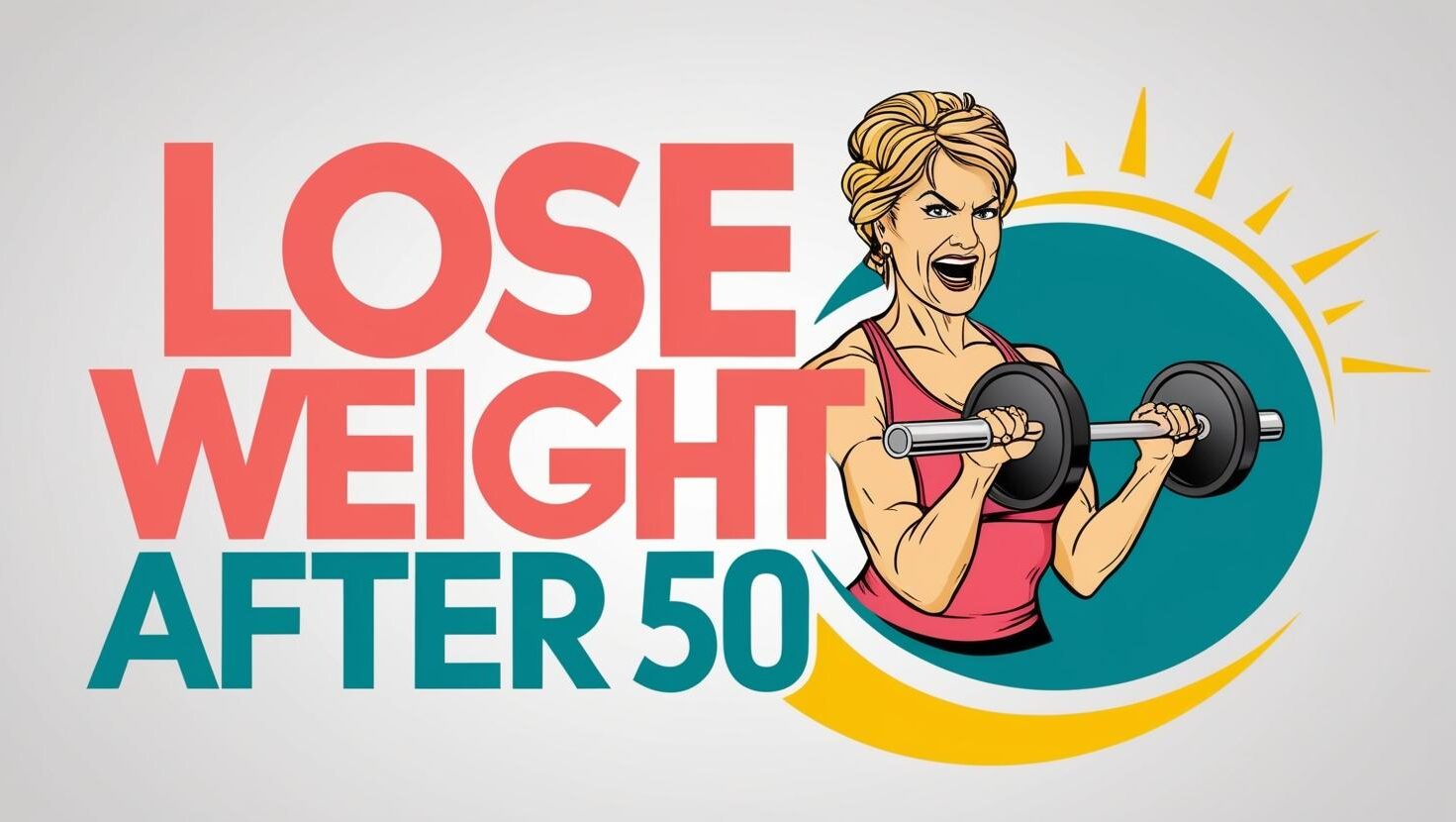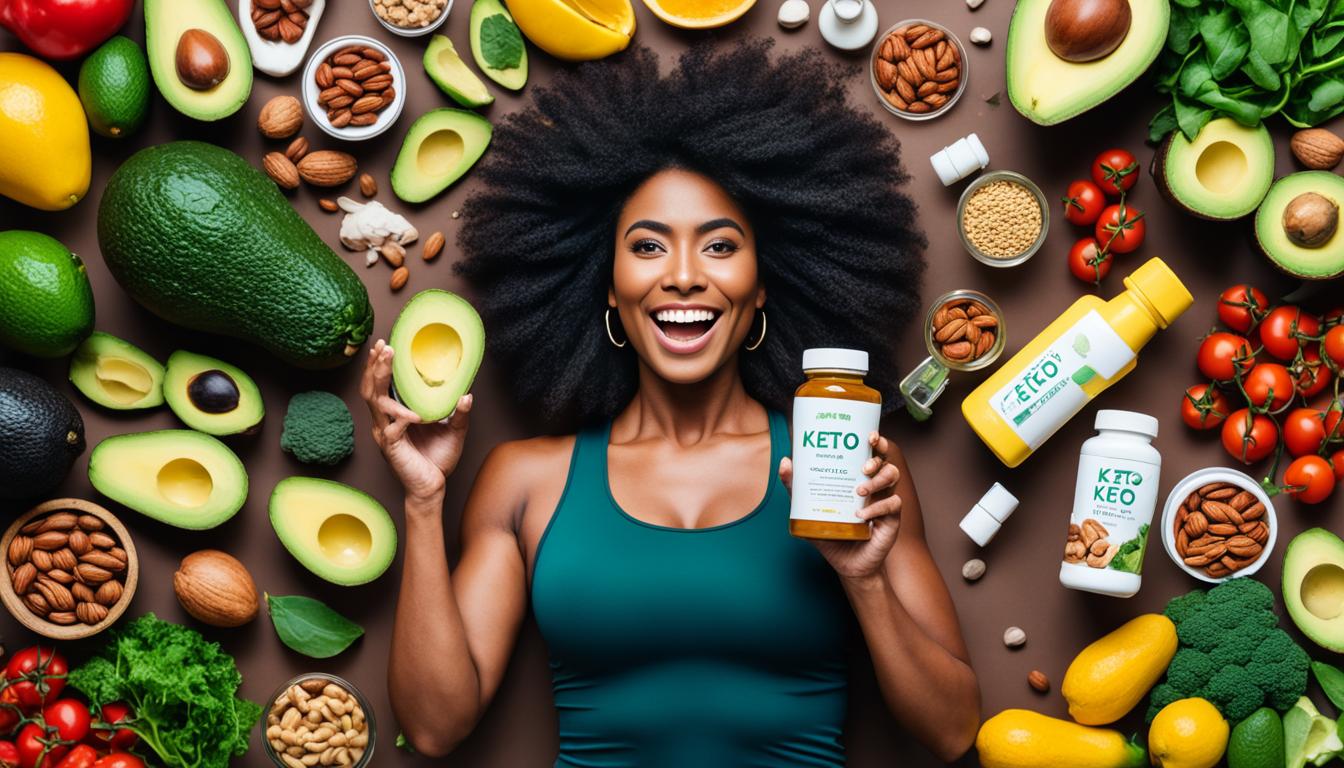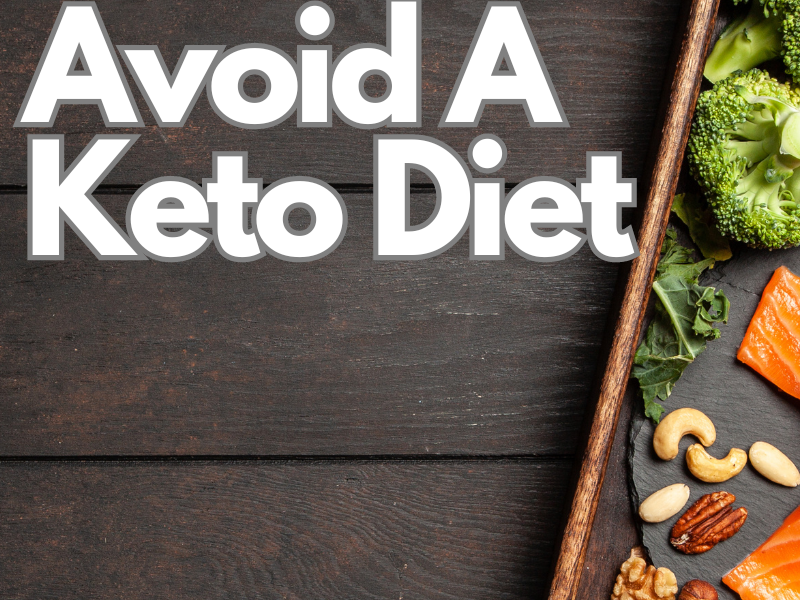This page contains affiliate links, meaning I get a commission if you decide to make a purchase through my links, at no additional cost to you.
Are you following the keto diet in your quest to lose weight? If so, incorporating the right supplements into your routine can enhance your weight loss efforts. The best keto for weight loss supplements are specifically formulated to support the body’s ability to burn fat in ketosis, aiding in faster weight reduction.
When choosing keto supplements, it’s important to opt for those that are backed by research and contain effective ingredients. The best keto supplements often include components like coconut oil, MCTs, and beta-hydroxybutyrate (BHB) salts.
Key Takeaways:
- Choosing the right keto supplements can enhance weight loss efforts on the keto diet.
- The best keto supplements contain ingredients like coconut oil, MCTs, and BHB salts.
- Research-backed and effective keto supplements are recommended for optimal results.
- Consult with a healthcare provider before starting any new supplement regimen.
Understanding the Keto Diet
The keto diet, short for ketogenic diet, is a popular eating plan that focuses on high-fat, low-carb foods. Its primary goal is to induce a metabolic state called ketosis, where the body switches its energy source from carbohydrates to stored fat. This shift allows the body to effectively burn fat and promote weight loss.
By reducing carbohydrate intake and increasing fat consumption, you force your body to enter ketosis. In this state, instead of using glucose from carbs for energy, the liver produces ketones from stored fat. These ketones become the body’s primary fuel source, leading to efficient fat burning.
The keto diet typically restricts carbohydrate intake to about 5-10% of daily calories, while fat consumption is increased to 70-75%. Protein intake is moderate, making up the remaining 20-25% of calories. With this macronutrient composition, your body enters ketosis within a few days to a week.
During ketosis, your body becomes a fat-burning machine. Stored fat is broken down into ketones, which your body uses for energy. This process not only promotes weight loss but also provides a steady source of fuel, reducing fluctuations in energy levels.
Implementing the keto diet can have various benefits beyond weight loss, including improved mental focus, increased satiety, and reduced inflammation. However, it’s important to note that the keto diet may not be suitable for everyone, especially those with certain medical conditions or dietary restrictions. Consulting with a healthcare professional before starting any new diet is always recommended.
Key Nutrients on the Keto Diet
When following the keto diet, it’s important to be aware of potential nutrient deficiencies that may arise due to the restriction of certain food groups. The keto diet focuses on high-fat, low-carb foods, which can lead to inadequate intake of essential nutrients. Several key nutrients that may be lacking on the keto diet include:
- Magnesium: Magnesium is involved in numerous bodily functions, including energy production, muscle function, and maintaining healthy bones. However, keto-friendly food options that are rich in magnesium are limited, putting individuals at risk of magnesium deficiency.
- Calcium: Calcium is essential for bone health and various other functions in the body. Dairy products, which are commonly rich in calcium, are often restricted on the keto diet, making it important to find alternative sources of this vital nutrient.
- Iron: Iron is necessary for the production of red blood cells and overall energy levels. While meat is a good source of iron on the keto diet, some individuals may still struggle to meet their iron needs due to limited food choices.
- Vitamin D: Vitamin D plays a crucial role in bone health, immune function, and several other processes in the body. While fatty fish and eggs are keto-friendly sources of vitamin D, it may be challenging to obtain sufficient levels through diet alone.
- Fiber: The keto diet can be low in fiber due to the limited intake of fruits, whole grains, and legumes. Adequate fiber intake is crucial for digestive health and maintaining regular bowel movements.
These nutrients are essential for overall health and well-being. It’s important to ensure proper intake to prevent deficiencies and associated health issues. Supplementation may be necessary for some individuals to bridge the nutrient gap. Consult with a healthcare professional to determine the appropriate supplements and dosages for your specific needs.
Magnesium Deficiency on the Keto Diet
A deficiency in magnesium can lead to various health problems, including muscle cramps, fatigue, and nausea. Since the keto diet restricts many magnesium-rich foods, such as leafy greens and nuts, it’s important to find alternative sources or consider magnesium supplementation to meet your daily needs.
Elevate Your Health – Try Magnesium Supplements Today!
“Magnesium deficiency can have a significant impact on overall health, leading to symptoms such as muscle weakness, irritability, and abnormal heart rhythms.”
Here are some keto-friendly sources of magnesium:
| Food Source | Magnesium Content (per 100g) |
|---|---|
| Spinach | 79mg |
| Avocado | 29mg |
| Pumpkin seeds | 262mg |
Calcium Deficiency on the Keto Diet
Calcium is essential for strong bones and teeth, nerve function, and muscle contraction. Since dairy products, which are a primary source of calcium, are restricted on the keto diet, it’s essential to find alternative sources. Some keto-friendly calcium-rich foods include sardines and kale.
Elevate Your Health – Try Calcium Supplements Today!
“A deficiency in calcium can increase the risk of osteoporosis and other bone-related conditions.”
Here are some keto-friendly sources of calcium:
| Food Source | Calcium Content (per 100g) |
|---|---|
| Sardines | 382mg |
| Kale | 150mg |
Iron Deficiency on the Keto Diet
Iron is essential for the production of red blood cells, oxygen transportation, and overall energy levels. While meat is a good source of iron on the keto diet, ensuring sufficient intake can still be a challenge. Adding iron-rich foods like beef and oysters to the diet or considering iron supplementation can help prevent deficiency.
Elevate Your Health – Try Iron Supplements Today!
“Iron deficiency can result in symptoms such as weakness, fatigue, and decreased immune function.”
Here are some keto-friendly sources of iron:
| Food Source | Iron Content (per 100g) |
|---|---|
| Beef | 2.7mg |
| Oysters | 9.1mg |
Vitamin D Deficiency on the Keto Diet
Vitamin D is crucial for bone health, immune function, and overall well-being. Limited sun exposure and restricted food options on the keto diet can make it challenging to obtain adequate levels of vitamin D. Including fatty fish and eggs in the diet or considering vitamin D supplementation can help ensure sufficient intake.
Elevate Your Health – Try Vitamin D Supplements Today!
“Vitamin D deficiency has been associated with an increased risk of bone fractures and certain chronic diseases.”
Here are some keto-friendly sources of vitamin D:
| Food Source | Vitamin D Content (per 100g) |
|---|---|
| Fatty fish (e.g., salmon, mackerel) | 10-20mcg |
| Eggs | 0.7-1mcg |
Fiber on the Keto Diet
Fiber is crucial for maintaining a healthy digestive system, regulating blood sugar levels, and promoting satiety. While the keto diet may restrict high-fiber foods like fruits, whole grains, and legumes, including low-carb vegetables, seeds, and nuts in the diet can help ensure sufficient fiber intake.
Elevate Your Health – Try Fiber Supplements Today!
“Adequate fiber intake is important for gut health and may help prevent constipation and other digestive issues.”
Here are some keto-friendly sources of fiber:
| Food Source | Fiber Content (per 100g) |
|---|---|
| Flaxseeds | 27.3g |
| Almonds | 12.2g |
| Broccoli | 2.6g |
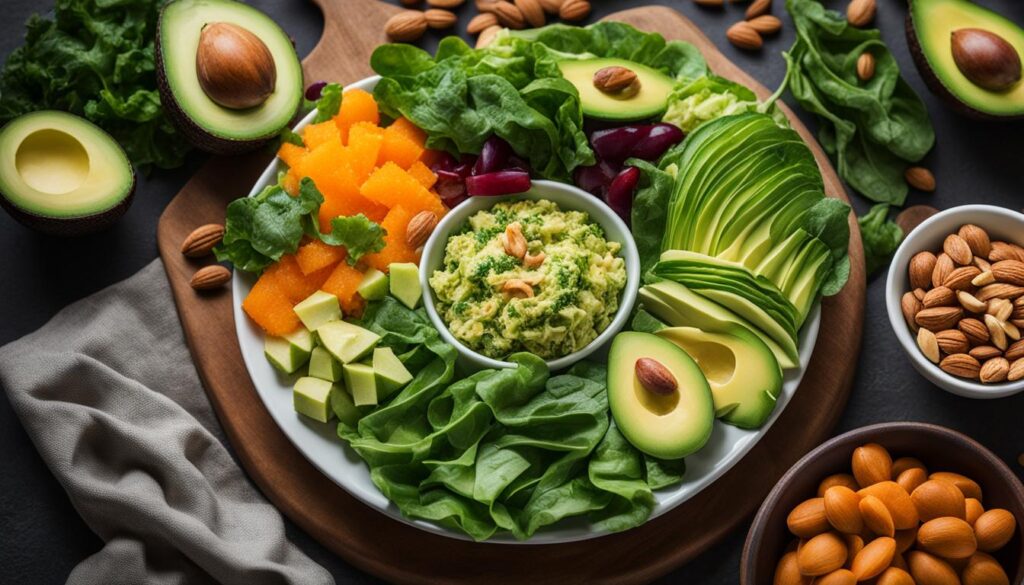
Magnesium on the Keto Diet
Following a keto diet can put you at risk of magnesium deficiency due to limited food options. Magnesium is crucial for various bodily functions, including energy production, muscle function, and maintaining healthy bones. Without adequate magnesium, you may experience symptoms such as nausea, fatigue, and muscle cramps.
To prevent magnesium deficiency, it’s important to incorporate magnesium-rich foods into your keto diet. Foods like spinach, avocado, and pumpkin seeds are excellent sources of magnesium. You can also consider taking a magnesium supplement, especially if it’s challenging to meet your magnesium needs through diet alone.
Here are some keto-friendly sources of magnesium:
- Spinach
- Avocado
- Pumpkin seeds
- Almonds
- Salmon
By including these foods in your keto meal plan or taking a magnesium supplement, you can ensure that you’re meeting your magnesium requirements and avoiding deficiency.
Magnesium is essential for various bodily functions, including energy production, muscle function, and maintaining healthy bones.
Remember, always consult with a healthcare provider before starting any new supplement regimen.
Calcium on the Keto Diet
Calcium is essential for maintaining healthy bones and supporting various bodily functions. However, on the keto diet, certain foods rich in calcium, such as dairy products, are restricted. This can increase the risk of calcium deficiency, which may lead to weakened bones and other health issues.
To ensure adequate calcium intake on the keto diet, it’s important to find alternative sources of this essential nutrient. Here are some calcium-rich keto-friendly foods:
- Sardines: These small, fatty fish are not only a great source of healthy fats but also provide a significant amount of calcium.
- Kale: This leafy green vegetable is low in carbs and high in calcium, making it an excellent choice for keto dieters.
- Broccoli: Another cruciferous vegetable, broccoli, is not only rich in fiber but also contains a decent amount of calcium.
- Chia seeds: These tiny seeds are packed with nutrients, including calcium, and can be easily incorporated into your keto meals.
If it’s challenging to meet your calcium needs through diet alone, you may consider calcium supplementation. Calcium supplements are available in various forms, such as calcium carbonate and calcium citrate. However, it’s essential to consult with a healthcare professional before starting any supplementation to determine the appropriate dosage and ensure it aligns with your specific health needs.
| Food | Calcium Content (per 100g) |
|---|---|
| Sardines | 382mg |
| Kale | 150mg |
| Broccoli | 47mg |
| Chia Seeds | 631mg |
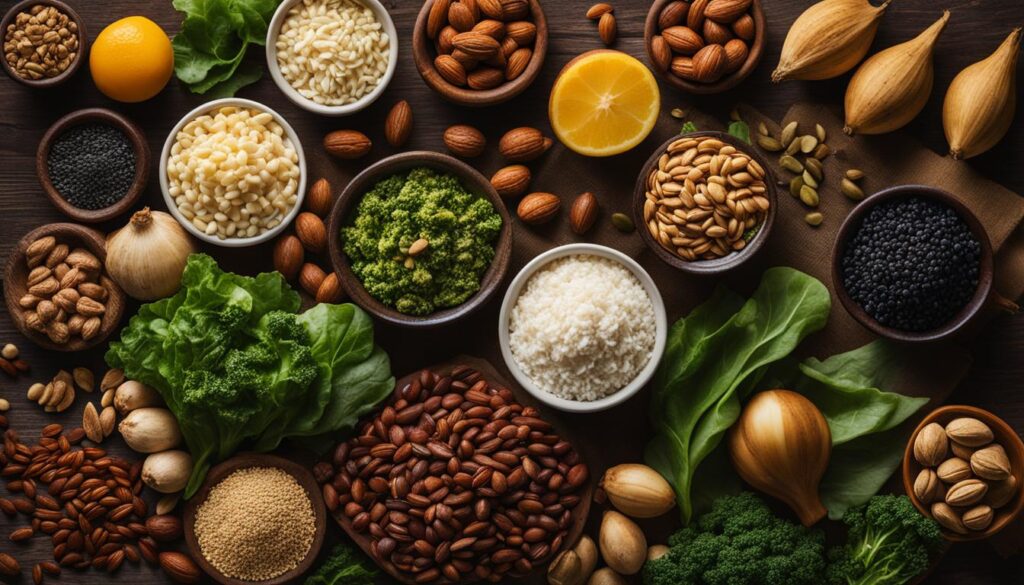
Iron on the Keto Diet
Iron is an essential mineral that plays a vital role in the production of red blood cells and overall energy levels. While meat is a good source of iron on the keto diet, some individuals may still struggle to meet their iron needs. It’s important to ensure adequate iron intake as iron deficiency can lead to symptoms such as weakness, fatigue, and anemia.
Fortunately, there are several iron-rich keto-friendly foods that can help prevent iron deficiency. Including these foods in your diet can provide you with the necessary iron levels to support optimal health:
- Beef: Beef is a great source of iron and can be easily incorporated into keto meals. Consider including lean cuts of beef like sirloin or tenderloin in your diet.
- Oysters: Oysters are not only delicious but also a rich source of iron. They can be enjoyed raw or cooked and make a great addition to a keto-friendly seafood platter.
For individuals who are unable to meet their iron needs through diet alone, iron supplementation may be necessary. Consult with a healthcare professional to determine the appropriate dosage and form of iron supplement that will best meet your needs.
Key Takeaways
Iron is essential for the production of red blood cells and overall energy levels. Including iron-rich foods in your keto diet, such as beef and oysters, can help prevent iron deficiency. If needed, consult with a healthcare professional to determine if iron supplementation is necessary.
Vitamin D on the Keto Diet
Vitamin D is a vital nutrient that plays a crucial role in bone health, immune function, and various other processes in the body. Adequate levels of vitamin D are essential for overall well-being. While the primary source of vitamin D is sunlight, it may be challenging to obtain sufficient amounts solely through diet, especially for individuals following a keto diet.
Fortunately, there are keto-friendly foods that can help boost your vitamin D intake. Fatty fish like salmon and mackerel are excellent sources of vitamin D. Incorporating these fish into your keto meal plan can provide you with the necessary vitamin D to support your overall health.
Eggs are another keto-friendly source of vitamin D. They are not only versatile but also packed with important nutrients, including vitamin D.
However, due to certain limitations or risk factors for vitamin D deficiency such as limited sun exposure, supplementation might be necessary. It is advisable to consult with a healthcare professional to determine if vitamin D supplementation is needed to maintain optimal levels.
Remember, maintaining adequate vitamin D levels is crucial for your bone health, immune system, and overall well-being when following a keto diet.
To summarize, while a keto diet can provide some vitamin D-rich food options, it may still be necessary to consider supplementation, especially for individuals with limited sun exposure or other risk factors for deficiency. Consult with a healthcare professional to ensure you are meeting your vitamin D needs effectively.

| Keto-friendly Vitamin D-rich Foods |
|---|
| Fatty fish (salmon, mackerel) |
| Eggs |
Fiber on the Keto Diet
The keto diet can often be deficient in fiber due to the limited intake of fruits, whole grains, and legumes, which are typically high in fiber. However, fiber plays a crucial role in maintaining digestive health and promoting regular bowel movements. It is essential to ensure an adequate intake of fiber while following a keto diet.
Fiber is a type of carbohydrate that the body cannot digest, but it is still important for overall health. It helps prevent constipation, promotes satiety, and supports healthy blood sugar levels. While the keto diet focuses on restricting carbohydrates, it’s important to be mindful of consuming enough fiber to avoid the negative effects of fiber deficiency.
To meet your fiber needs on the keto diet, it’s essential to include keto-friendly fiber sources in your meals. Some examples of fiber-rich foods that are low in carbs include:
- Chia seeds
- Flaxseeds
- Almonds
- Avocado
- Broccoli
- Brussels sprouts
These foods not only provide fiber but also offer additional nutrients and health benefits. Incorporating them into your diet can help ensure you’re getting enough fiber while following the keto diet.
If it’s challenging to consume enough fiber through food alone, fiber supplementation may be necessary. Fiber supplements can provide an easy and convenient way to meet your daily fiber requirements. They come in various forms, including powders, capsules, and chewable tablets. It’s important to choose a fiber supplement that is keto-friendly and doesn’t contain added sugars or unnecessary carbohydrates.
Benefits of Fiber Supplementation on the Keto Diet
“Fiber supplementation can help alleviate the symptoms of fiber deficiency on the keto diet and support digestive health. It provides the necessary bulk for proper bowel movements and helps maintain regularity.”
Incorporating fiber-rich foods and considering fiber supplementation when needed can help prevent fiber deficiency and support overall health while following the keto diet. Prioritizing fiber intake is important for maintaining a well-rounded and balanced diet.
Other Considerations for the Keto Diet
While the keto diet can be an effective strategy for weight loss, it’s essential to be aware of potential side effects that may arise, such as the keto flu. This temporary condition can cause symptoms like nausea, fatigue, and irritability as your body adjusts to the new diet.
The keto flu occurs when your body transitions from using carbohydrates as its primary fuel source to burning fat for energy. This adjustment period can vary in duration and severity from person to person.
Fortunately, there are supplements available that can help alleviate the symptoms of the keto flu and support rapid weight loss on the keto diet. Two popular options are exogenous ketones and digestive enzymes.
Exogenous ketones: These supplements provide your body with an additional source of ketones, which can help jumpstart ketosis and provide an energy boost. They can help reduce the symptoms of the keto flu and support weight loss by promoting fat burning.
Digestive enzymes: When transitioning to the keto diet, some individuals may experience digestive issues due to the significant increase in dietary fat. Digestive enzyme supplements can help support the breakdown and absorption of fats, improving digestion and minimizing discomfort.
Adding these keto supplements to your diet can help ease the transition and make the keto flu more manageable. However, it’s important to note that supplements should not replace a well-balanced diet and healthy lifestyle habits.
Consult with your healthcare provider before starting any new supplement regimen, as they can provide personalized guidance based on your specific needs and health conditions.

| Supplement | Benefits | Key Ingredients |
|---|---|---|
| KetoCharge | Supports ketosis and rapid weight loss | BHB salts, MCTs, vitamins |
| BioTRUST Keto Elevate | Promotes fat burning and increased energy | BHB salts, MCTs, caffeine |
| Keto Burn | Enhances ketosis and boosts metabolism | BHB salts, green tea extract, chromium |
Choosing the Best Keto Supplements
When it comes to selecting the best keto supplements for your weight loss journey, it’s essential to choose those that have been backed by scientific research and contain proven ingredients. These top-rated keto supplements can help you achieve your goals and enhance the effectiveness of the ketogenic diet.
One of the best keto supplements on the market is Keto Charge. This supplement is formulated with a combination of BHB salts, MCTs, and vitamins to support weight loss and enhance ketosis. It can help your body transition into ketosis faster and increase your energy levels, making it easier to stick to your keto diet plan.
Another popular option is BioTRUST Keto Elevate. This supplement contains high-quality ingredients like BHB salts, which help to increase ketone levels in your body, boost your metabolism, and support fat burning. With Bio TRUST Keto Elevate, you can optimize your keto diet results and achieve your weight loss goals more effectively.
For those looking for an all-in-one keto supplement, Keto Burn is an excellent choice. This supplement combines a powerful blend of BHB salts, MCTs, and other essential nutrients to help you burn fat, maintain energy levels, and enhance mental clarity. It can be a valuable addition to your keto diet plan, ensuring you have all the necessary nutrients to support your overall health and weight loss journey.
Remember, before starting any new supplement regimen, it’s crucial to consult with a healthcare provider. They can provide personalized advice based on your specific needs and ensure that the chosen supplements are safe for you. With the right keto supplements and professional guidance, you can maximize the benefits of the ketogenic diet and achieve your weight loss goals.
FAQ
What are the best keto supplements for weight loss?
Some of the best keto supplements for weight loss include KetoCharge, BioTRUST Keto Elevate, and Keto Burn.
How does the keto diet work for weight loss?
The keto diet puts the body into a state of ketosis, where it burns fat for energy instead of carbohydrates, leading to weight loss and fat burning.
Are there any nutrient deficiencies to be aware of on the keto diet?
Yes, the keto diet can lead to potential deficiencies in magnesium, calcium, iron, vitamin D, and fiber. Supplementation may be necessary.
What are some keto-friendly sources of magnesium?
Spinach, avocado, and pumpkin seeds are keto-friendly options for obtaining magnesium. Supplementing with a magnesium supplement can also help prevent deficiency.
How can I meet my calcium needs on the keto diet?
While dairy products are restricted on the keto diet, sources of calcium like sardines and kale can be incorporated. Calcium supplements may also be necessary.
What can I do to prevent iron deficiency on the keto diet?
Including iron-rich foods like beef and oysters in your diet can help prevent iron deficiency. Taking an iron supplement is also an option.
How can I ensure adequate vitamin D on the keto diet?
Fatty fish and eggs are keto-friendly sources of vitamin D. However, supplementation may be necessary, especially for individuals with limited sun exposure.
How can I obtain enough fiber on the keto diet?
Including high-fiber foods like seeds, nuts, and low-carb vegetables in your diet is crucial. Fiber supplements may also be necessary.
Are there any side effects to watch out for on the keto diet?
Some individuals may experience the keto flu, which can cause symptoms like nausea, fatigue, and irritability. Supplements like exogenous ketones and digestive enzymes can help alleviate these symptoms.
How do I choose the best keto supplements?
When selecting keto supplements, it’s important to choose those supported by research and containing effective ingredients. Some top-rated options include KetoCharge, BioTRUST Keto Elevate, and Keto Burn. Consult with a healthcare provider before starting any new supplement regimen.
